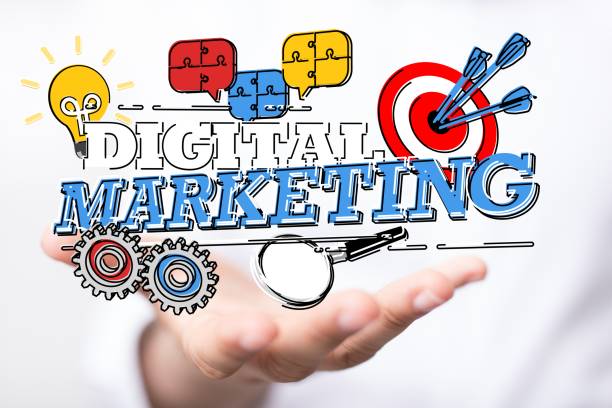In today’s fast-paced, digitally-driven world, human connection has evolved dramatically. Whether it’s through social media, video calls, or messaging apps, the way we connect with others has been reshaped. One of the core aspects of this transformation is captured by the Portuguese verb “ligarmos,” meaning “to connect” or “to link up.” More than just a word, “ligarmos” reflects a broader social phenomenon: the growing importance of connection in both personal and professional realms. This article explores how the concept of ligarmos has taken on new meaning and how it can empower individuals in our modern society.
The Essence of Ligarmos
At its heart, ligarmos refers to the act of making a connection, either physically, emotionally, or digitally. Traditionally, it might have referred to a phone call or the forging of a personal relationship. However, in the 21st century, ligarmos goes beyond the simple act of communication; it embodies the importance of creating meaningful and sustainable connections in a digital age that is often overwhelmed by information and superficial relationships.
In today’s context, ligarmos applies to a range of activities: sending a direct message on social media, hopping on a Zoom call for a business meeting, or even just texting a friend to check in. But while the means of connection have evolved, the purpose remains the same: to foster a sense of belonging and shared understanding.
The Role of Ligarmos in Professional Networking
One area where the concept of ligarmos has been transformative is in the professional sphere. In the past, building a professional network was largely based on face-to-face interactions, often at industry events, conferences, or meetings. Today, these interactions still exist but are complemented by online platforms like LinkedIn, where networking is a digital-first experience.
With just a few clicks, professionals can connect with colleagues, mentors, and potential employers from across the globe. The ease with which these connections can be made has changed the landscape of professional networking. Now, more than ever, your professional success can hinge on your ability to connect—ligarmos—with the right people, at the right time.
But it’s not just about quantity; quality matters too. Meaningful connections are those that provide mutual value, whether it’s sharing insights, offering advice, or opening doors to new opportunities. By understanding the importance of cultivating deeper professional relationships, we can truly harness the power of ligarmos to enhance our careers.
Ligarmos and Social Media
Social media is another area where the concept of ligarmos plays a pivotal role. Platforms like Facebook, Instagram, and Twitter have allowed individuals to stay in touch with friends and family, regardless of geographical distance. These platforms have made it easier than ever to maintain relationships and foster a sense of community.
However, with this increased connectivity comes the challenge of maintaining meaningful relationships in an environment that often prioritizes quantity over quality. It’s easy to fall into the trap of valuing likes, comments, and shares as indicators of connection, but true ligarmos goes deeper than surface-level interactions.
To leverage social media for real connection, individuals must focus on authenticity. Whether it’s sharing a heartfelt message, offering support during tough times, or simply engaging in meaningful conversations, ligarmos is about creating genuine relationships that extend beyond the screen.
The Importance of Ligarmos in a Remote World
The COVID-19 pandemic accelerated the shift towards remote work and digital communication, making ligarmos more important than ever. With teams now spread across different time zones and locations, the ability to effectively connect with colleagues has become crucial for maintaining productivity and collaboration.
Video conferencing tools like Zoom and Microsoft Teams have allowed companies to stay connected, but these tools are only as effective as the effort put into fostering communication and teamwork. Simply having the technology isn’t enough; organizations must encourage an environment where ligarmos is prioritized, with open communication channels and regular check-ins to ensure that everyone feels included and engaged.
For remote teams, ligarmos is not just about work-related interactions. It’s also about building a sense of camaraderie and team spirit. Virtual happy hours, team-building exercises, and informal chats can help replicate the casual interactions that occur in an office environment, making employees feel more connected despite the physical distance.
Ligarmos in Personal Relationships

In our personal lives, the concept of ligarmos has always been fundamental. Whether it’s the bond between family members, friendships, or romantic relationships, the act of connecting is what keeps these relationships strong. However, in the age of technology, it’s easy to become disconnected, even when we’re constantly communicating through digital means.
To maintain healthy personal relationships, it’s important to be intentional about how we connect. Rather than relying solely on quick texts or social media interactions, taking the time to have meaningful conversations—whether in person, on the phone, or through video calls—can strengthen bonds and deepen connections.
Conclusion
In a world that is more connected than ever, the concept of ligarmos remains as relevant today as it has ever been. Whether in professional settings, social media, or personal relationships, the ability to connect meaningfully is key to success and fulfillment. As we navigate the complexities of a digital world, remembering the deeper essence of ligarmos can help us build stronger, more authentic relationships that enrich our lives. By prioritizing quality over quantity and fostering genuine connections, we can truly unlock the power of ligarmos in both our personal and professional lives.





